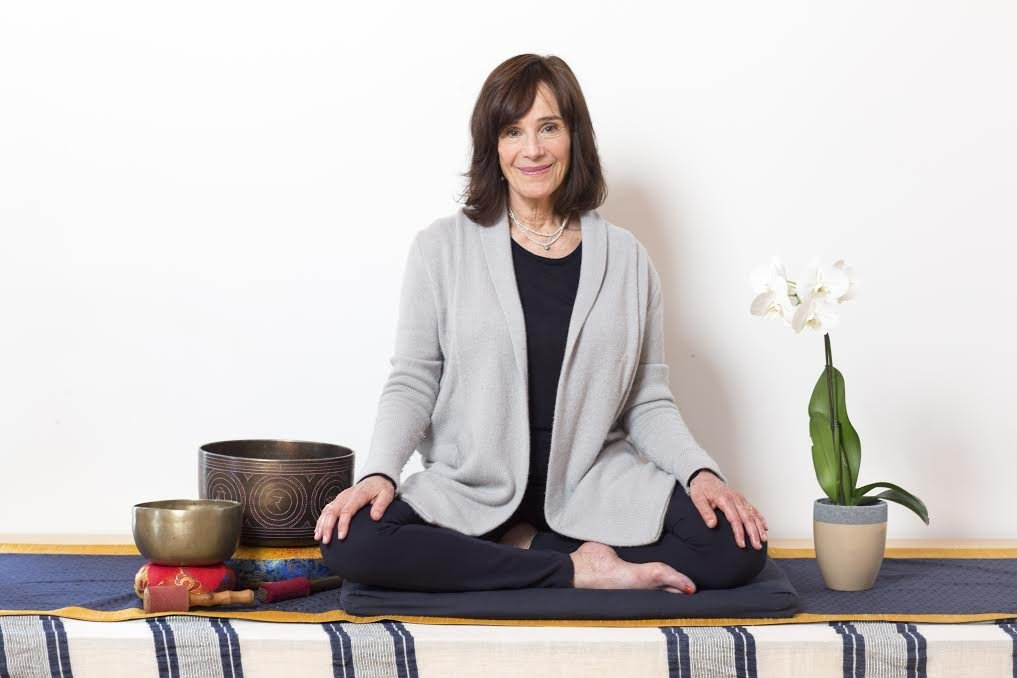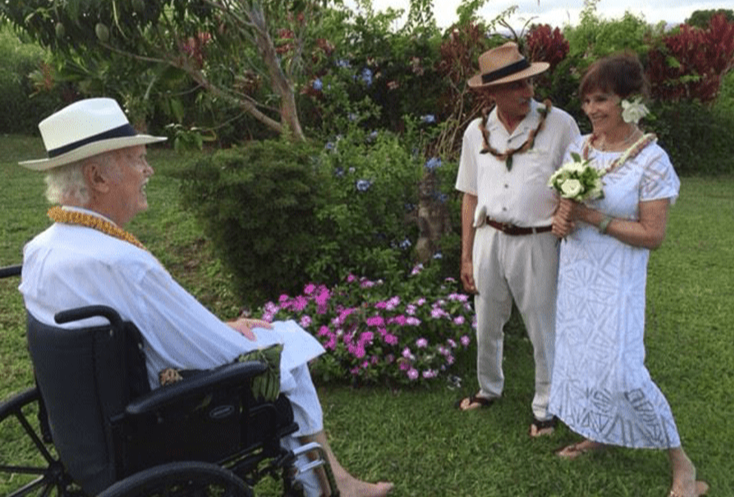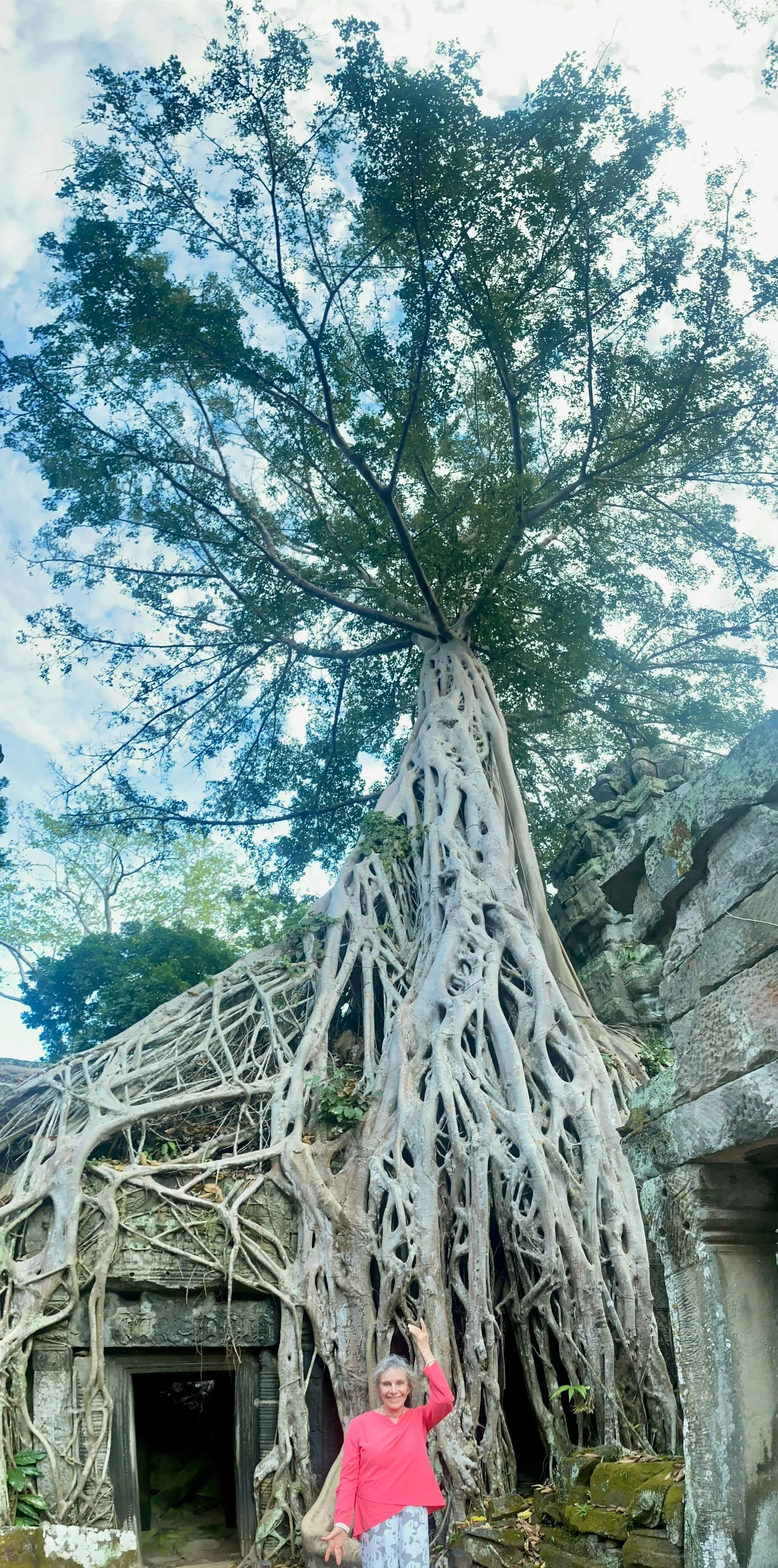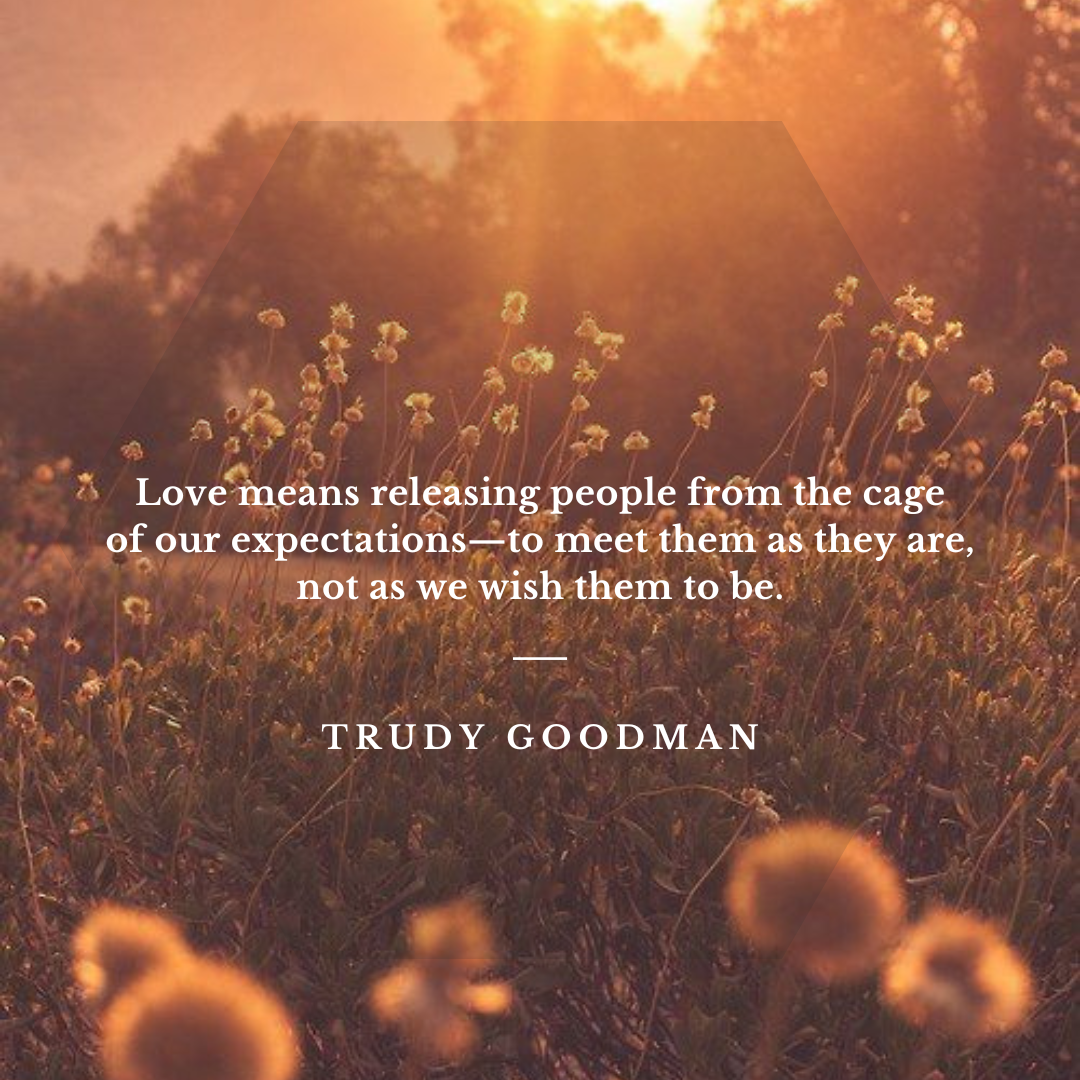Freeing All Beings
This week, I’m happy to share an article I wrote for Spirituality & Health magazine that features the wisdom of my beloved cousin, Trudy Goodman. It explores how a vow has the power to help free us from our projections and open our hearts to a deeper love—for ourselves, others, and the entire world.
Sometimes, a single conversation can shift how we move through our lives.
That’s what happened to me one afternoon as I was walking along my favorite beach trail, talking to my cousin Trudy Goodman, a renowned Buddhist teacher, Harvard-trained psychotherapist, and founder of InsightLA. I was telling her how I had mixed feelings about the four bodhisattva vows—the ancient Buddhist promises to live not just for one’s own awakening, but for the sake of all beings:
Beings are numberless; I vow to save them.
Delusions are inexhaustible; I vow to end them.
Dharma gates are boundless; I vow to enter them.
Buddha’s way is unsurpassable; I vow to become it.
I had chanted these vows for 18 years while I was practicing in the Soto Zen tradition, though I frequently wrestled with the first line. Vowing to “save all beings” sounded impossibly grandiose, even arrogant. Was I pledging to rescue others, as if I knew best?
Trudy smiled and said, “That line has been translated in many different ways. My favorite translation is ‘Sentient beings are numberless. I vow to free them all.’”
Trudy explained that the bodhisattva vows are meant to be aspirational. One can never fully complete them; they’re like a compass—we follow them to stay true to what matters most. “For me,” she said, “this vow means letting go of my ideas about who someone should be—and instead allowing them to be who they are. It reminds me not to put others in the cage of my expectations.”
I loved Trudy’s interpretation immediately—that making a vow to free all beings provided the necessary perspective to see how we trap people in our projections. This enables us to begin to peel back the layers of our assumptions and see everyone with more clarity.
“With fresh eyes,” Trudy said, “we are freer to love and support people without conditions—to meet them as they are, not as we wish them to be.”
Liberation Is Not a Solo Journey
Another aspect of this first bodhisattva vow that Trudy loves is its communal nature: It’s not just about freeing ourselves—it’s about freeing everyone.
“Traditionally, the bodhisattva vows are about serving others and acknowledging the deep interconnectedness of all life,” Trudy explained. “We don’t just cross over into a personal nirvana and leave everyone behind. Rather, we vow to keep returning until all beings are liberated—to bring everyone along with us. The ultimate delusion is our separateness, and it’s the delusion of separateness that’s at the root of all suffering.”
Personally, as someone who’s been working hard to be less self-sacrificing in my daily life, I asked Trudy if this approach might actually be too selfless. Her answer: “No, because we must always include ourselves in our circle of compassion.”
Trudy continued, “My vow includes freeing all the different parts of myself: the messy ones, the tender ones, even the parts that I’ve spent years judging or trying to fix. I want them to peacefully coexist.”
Ram Dass officiating Trudy’s marriage to Jack Kornfield, 2016
For Trudy, the vow has freed her from trying to be like anybody else or prove that she’s perfect. “I still chant the vows. But now when I say, ‘I vow to free them all,’ I’m including all the versions of myself that failed, pretended, or betrayed myself. Each time I think I should be more, or that I’m not enough, I’m imprisoning myself in my own narrow view.”
The paradox is this: We begin to free ourselves and others the moment we stop insisting that any of us must be different.
To Trudy, part of what makes this vow so beautiful is that it can guide us in so many directions. She doesn’t limit “freeing all sentient beings” to humans—she believes that we also need to free everything in the plant and animal world from our outdated beliefs about them.
Trudy and Jack in Angkor Wat by a strangler fig tree, Cambodia. 2024
As science catches up with ancient wisdom, we’re learning that even beings once considered insentient—plants, fish, trees—may possess memories, emotions, and intricate ways of relating. “We know so little,” said Trudy, “and yet we often act as if we know everything. But when you have a mystical experience, you feel the aliveness in everything—not as an idea, but as a truth in your bones. It’s not a theory. You just know.”
The Power of Vows
When asked whether there’s a difference between taking vows and setting intentions, Trudy replied, “To me, an intention is like a baby vow. Intentions can be powerful, but a vow carries more weight—it’s deeper, more serious. When you chant a vow every day, it starts to crystallize inside you. And as your practice deepens, the vow keeps unfolding. Its meaning keeps evolving.”
What about making the Buddhist vows our own—adapting them so they feel more relevant to our modern-day lives? “I think it really depends,” Trudy answered. “There is power in repeating vows that have been spoken in a similar form for so many centuries. If you talk to a traditional teacher, they will say, ‘These vows have existed for over a thousand years. Why do you need to change them?’”
Trudy with her first Zen teacher, Ven. Seung Sahn, circa 1987
Trudy’s opinion is that while we need the keepers of tradition, it’s important to have a practice that we genuinely connect with. “Sometimes it’s just about finding a translation that we truly resonate with. For you, simply replacing the word ‘save’ in the vow to save all beings with the word ‘free’ changes everything.”
Living the Vow
Since my conversation with Trudy, I’ve been embracing the vow to free all beings, and in doing so, I’m discovering more of its power in my daily life.
Living with the intention to free everything from the endless stream of thoughts and assumptions my mind produces has been unexpectedly liberating. It humbles me, interrupts old patterns, and invites me to look more deeply, with less certainty and more curiosity.
Practicing this vow brings to mind an analogy in meditation practice—that thoughts are like clouds drifting across the sky, temporary and ever-changing. Rather than getting caught up in them, we can learn to rest as the sky itself: spacious, steady, and calm. When I’m living the vow to set all beings free, I’m suddenly able to see my myriad judgments, expectations, and emotional reactions as passing clouds. They still arise, but instead of holding on to them, I’m better able to disengage and let them drift on by.
The truth is, the labels we automatically apply to people and things often feel like our own. But in fact, they are largely inherited—passed down through generations, shaped by culture, family, and experience.
“Good or bad, beautiful or ugly, right or wrong—these are labels that shrink the richness of reality,” shared Trudy. “Everything is constantly changing, but our biased judgments freeze things in place. Then, too often, our limiting, fixed beliefs become self-fulfilling prophesies.”
Myra’s free-roaming dogs, Henry and Leo
A surprising benefit of taking on the vow to free all beings is that my life has felt less routine and more exciting in many arenas. From freeing myself from a self-imposed rule to clean my kitchen before picking up my guitar, to allowing my dogs to choose the direction of our walks more often—I’m feeling more flexible and open to new possibilities.
“Sometimes the most powerful thing we can do is simply stay in the presence of what is—mindful, kind, and unguarded,” said Trudy. “That’s how we begin to set all beings free. While we may never fully free all beings, the intention to truly see them as they are is an act of love.”








